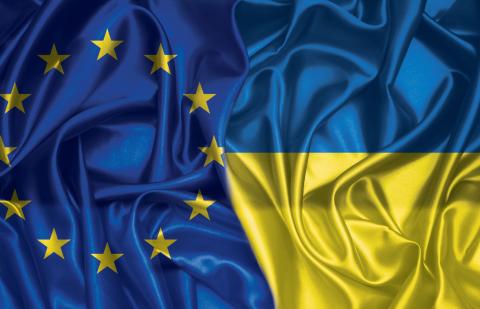European Economic
and Social Committee
EU-Ukraine: interoperability and solidarity – key factors for transport connections
At the debate held in Brussels by the European Economic and Social Committee (EESC), participants pointed to the importance of infrastructure and harmonised standards to connect the EU and its neighbouring countries, especially in light of the redefined geopolitical landscape brought about by the war in Ukraine.
Interoperability, solidarity and sustainability: these are the watchwords for a successful EU transport policy which takes into account the latest developments in international politics.
The debate on Trans-European Transport Network Corridors and EU-Ukraine Solidarity Lanes, held in Brussels in February 2023 by the Section for Transport, Energy, Infrastructure and the Information Society (TEN), revealed a crucial point: European transport policy needs to be shaped against the background of external relations.
When it comes to decision-making, the EU internal market and its transport network cannot be considered in isolation, as unforeseen disruptive events taking place beyond the EU's borders are now having an impact on internal and cross-border infrastructures.
In the past few months, the war in Ukraine has completely redefined the EU's geopolitical landscape, leading to an amended Trans‑European Transport Network (TEN-T) proposal by the European Commission which now includes Ukraine and Moldova in the project instead of Russia and Belarus.
Commenting on this important matter, TEN president Baiba Miltoviča said: The need for urgent reaction to the war in Ukraine at all levels, in particular the humanitarian aspect, made the issue of interoperability with neighbouring countries even more pressing. This is a key element together with the need for interconnections, multimodality, infrastructure, harmonised standards and financing.
The event discussed the best ways to achieve a coherent and integrated transport policy, eliminate the bottlenecks in cross-border points and lay the foundation for smooth and seamless transport flows between the EU and neighbouring countries such as Ukraine and Moldova.
Interoperability and sustainability are and will remain the focal points of the TEN-T policy. This is the main point stressed by Stefan Back, president of the TEN Permanent Group on Transport and rapporteur of the EESC opinion Revision of the TEN-T and Rail Freight Corridor Regulation, who added that for the sake of its resilience, the TEN-T corridor network should include sea bridges and rail ferry connections.
When extending TEN-T rail links to Ukraine, interoperability is essential: the different gauge used is in fact one of the main problems addressed by the "solidarity lanes", which are meant to provide immediate import/export and mobility solutions with adequate capacity for grains and other products, but also passengers, between Ukraine and the EU.
Interoperability involves infrastructure development. According to Marcin Nowacki, moderator of the debate and rapporteur of the EESC opinion EU-Ukraine Solidarity Lanes, this is crucial to make progress on EU‑Ukraine border crossings, but requires significant investment at all levels. Lack of guarantees and insurance for European companies involved in freight exchange with Ukraine should be tackled at national level, with potential use of EU funds.
Philippe Chantraine, from the European Commission's DG MOVE, added that solidarity lanes would also support Ukraine's future integration into the EU in the long term. The status of accession country for Ukraine turned an emergency into the prospect of long-term integration into the EU internal market, making the forthcoming investments in border crossing facilities and connections likely to be accompanied by European funding instruments such as structural funds and the Connecting European Facility (CEF).
Along the same lines, Anna Carin Krokstäde, of the European External Action Service (EEAS), mentioned the vital role played by interconnectivity and the solidarity lanes for the EU and Ukraine, as this represented the economic lifeline for Ukraine. She pointed out that the European Union had provided support to Ukraine in military, financial, humanitarian and political terms, with outreach to the rest of the world where Ukraine's agricultural products are needed, so far mobilising over EUR 37 billion for civilian support.
Alberto Mazzola, representing the Community of European Railway and Infrastructure Companies (CER), stressed that solidarity lanes were an important step taken by the EU for both freight and people, but judged them insufficient and hoped for progress in this direction. European railway companies have played an important role in the first few months of the war, carrying about six million people from and to the country, but have now reached maximum capacity due to lack of infrastructure, trains, drivers and insurance coverage. Long-term investment projects will only be possible once the military aggression has stopped.
Expressing satisfaction for the inclusion of Ukraine in the TEN-T networks, Daria Derevianchuk, from the Ukrainian Ministry of Infrastructure and Development, noted how important development of sustainable and efficient infrastructure in line with European standards was. She added that thanks to transport coordination, it was possible to achieve a 20% increase in rail freight, although product checks still needed to be sped up.
